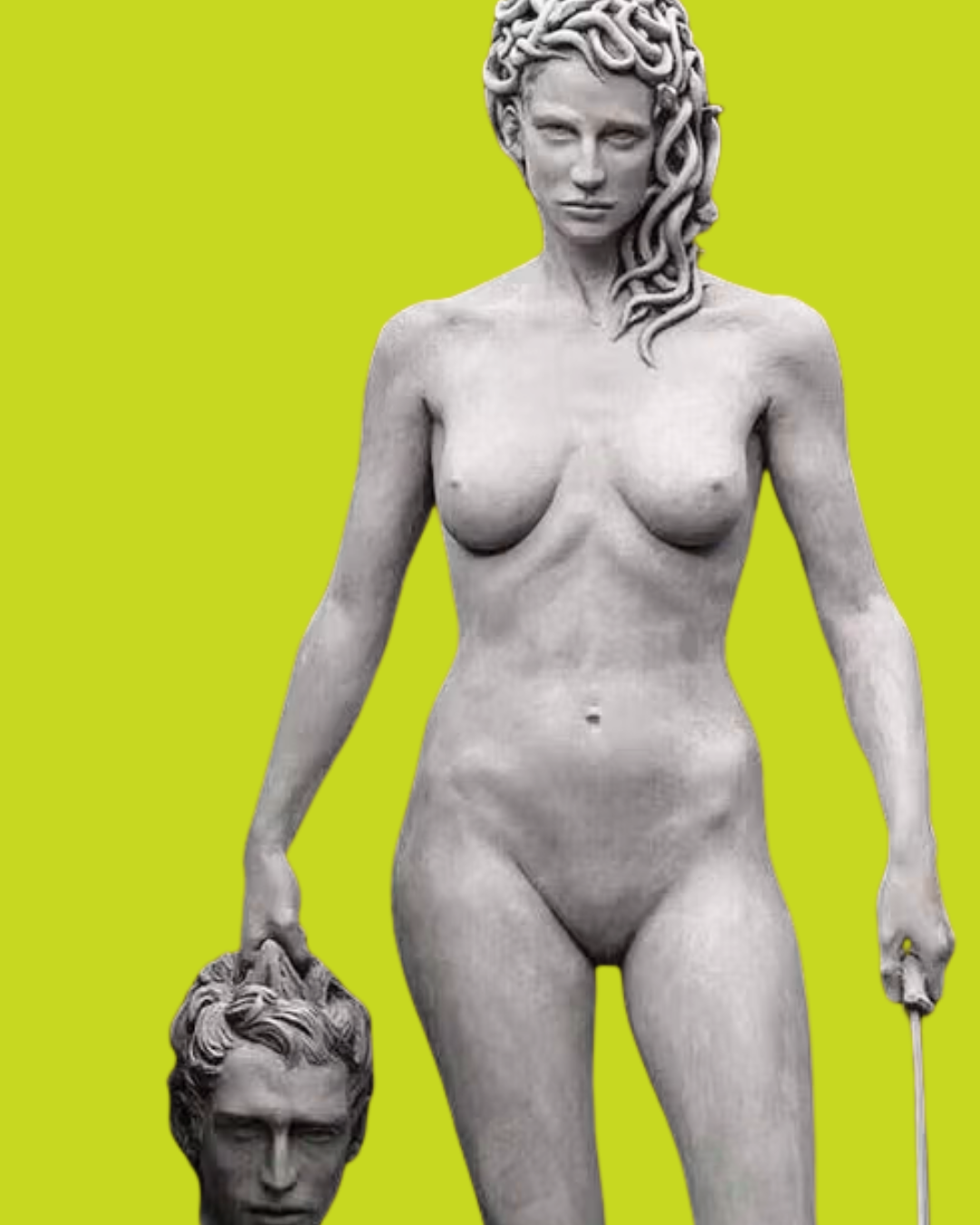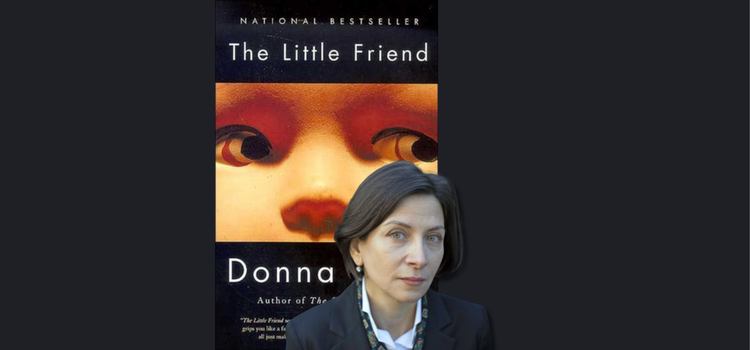Thinking about Medusa


Remember this sculpture? Luciano Garbati created it in 2008. In 2020, it was installed across the street from the New York courthouse where Harvey Weinstein was on trial for his many crimes against women, and it was celebrated for “flipping the script.” Here was a rape victim with power and agency, the argument went. A perfect symbol of the #MeToo movement.
I hated this sculpture the moment I saw it. As a fairly self-aware Gen Xer, I took some time to ask myself whether or not this was just my reflexive dislike of anything everybody else loves. Ultimately, I stand by my distaste. The first thing that annoyed me is that this Medusa is as desexed as a Barbie doll. While I fully understand if the artist didn’t want to have to deal with whether or not her pubes are also snakes, why make her naked? I realize that Garbati is riffing on Benvenuto Cellini’s Perseus, who is naked. And maybe, like Cellini, Garbati is playing to an audience that feels like it’s all right to look at naked people who are Classical figures, even if this feels like a bit of a stretch in a contemporary context. Nevertheless, why give your Medusa realistically nice tits and no external genitalia? It’s very annoying to me that this warrior woman has no vulva.
I am not the only one to note that there’s something a little off about making Medusa a conventionally attractive woman with features typically associated with whiteness—especially in the context of #MeToo. The hashtag and the movement didn’t break through to mainstream (white) culture until Alyssa Milano borrowed the phrase from activist Tarana Burke, a Black woman, without crediting Burke. Rose McGowan went a bit deeper in her intersectionality, but not in a good way. (Also: James Corden is trash.)
There’s also the fact that Garbati’s Medusa is holding the head of Perseus—her murderer—and not Poseidon, the god who raped her, in Ovid’s version of her story. This critique is nerdy, I know, but it irritates me and I think someone writing a paper for a 300-level art history class could get several pages out of this. Finally, I can’t help noticing that I’m writing this a day or so after Ghislaine Maxwell has been moved from a federal prison to a minimum-security facility that, according to the Washington Post, has a “reputation as one of the nation’s most lenient lockups for nonviolent women offenders.” If you know me or my work at all, you know that I want to smash the patriarchy and am generally a bit of a misandrist, but refusing to acknowledge the role of women in violence against women—-and the role of white women in upholding both misogyny and white supremacy—only serves men.
Like any woman who has been around for a while—several decades or several millennia—Medusa is a rich text, and I feel like she has a lot to teach us right now. This is why the Fall 2025 issue of Croning, the print zine, is dedicated to Medusa. As of right now, the contents will include an excerpt from After Purity: Race, Sex, and Religion in White Christian America; a spell for setting boundaries; a cheeky poem; and whatever I end up writing.
We are still looking for contributions! If you’ve got an idea, please check out this call for submissions. If you don’t have an idea and would like to be inspired, check out this call for submissions! I hope to have print zines in the mail by September 22. The last date for submitting an idea is August 18. I’ll be asking for completed work by September 13.
Here’s Perseus’s battle with Medusa from ray—the real version, not the remake. I was already a mythology-obsessed kid when I saw this movie and quite familiar with the work of Ray Harryhausen. This scene was a pivotal moment. I felt the horror-movie terror of Medusa’s approach but, at the same time, she was so much more interesting than Harry Hamlin.

My life is a bit more of a mess than usual, but I’ve hit my reading goal of 54 novels for the year. Or maybe I’ve hit my reading goal for the year because my life is a mess and dissociating is now more appealing than ever! In any case, if you’re looking for something to read, I’ve got some suggestions for you, all set in the weird world of metareality, each with a different vibe. Can I connect these books to Medusa? You betcha. They all explore the space between appearance and reality, as well as the potentially corrosive impact of inviting people to look at you.
Romance: Adrienne Gunn’s Fan Favorite is a classic contemporary romance that is both smart and funny. One aspect of this novel that I particularly enjoyed was the author’s dedication to characters. Her hero and heroine are vivid and engaging, but the secondary characters feel like real people, too. (Adrienne has a substack, by the way.)
Mystery: The publisher describes Jo Piazza’s Everyone Is Lying to You as the “#tradwife murder mystery we’ve all been waiting for” and publishers have to say that sort of thing but in this case, I feel like it’s true?
WTF: I don’t watch Good Morning America so maybe I am underestimating both the show and the people who watch it but learning that Aisling Rawle’s debut The Compound is a GMA Book Club seems wild to me. The interview with the author on GMA makes it seem even more bananas. This book and those hosts seem to exist on two very different planets. Maybe that’s good! Anyway, I try not to use the word “dystopian” these days—I feel like it’s ceased to be meaningful—but this story takes place in a world in which climate upheaval and scarcity are accelerating while the desire for luxury goods and cultivating a life that looks great to the people looking at you have not.





Comments ()